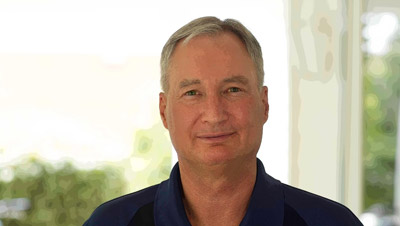
Distinguished Professor
Office: 534B Physics Building
Phone: +1 (530) 752-6416
Fax: +1 (530) 752-4717
Email: jbrundle@ucdavis.edu
Personal Professional Website:
http://rundle.physics.ucdavis.edu
Research Interests:
Professor John Rundle joined the UCD faculty in 2002. His research is concerned with the dynamics of complex systems, for the most part in the geosciences. For over thirty years, his research has focused on using statistical physics to understand the physics of earthquakes and other driven threshold systems. Mathematically, these systems are characterized by phase transitions, both first (nucleation) and second order types. The dynamics of these systems can be understood by the use of field theories developed in other areas of physics, including particle physics and cosmology.
Professor Rundle has a particular interest in the development of methods for earthquake forecasting based on studies of chaos and complexity in driven nonlinear systems, as well as on the use of realistic, large scale numerical simulations. More recently, he has developed an interest in viewing crashes in economic and financial systems as a kind of .Econoquake. that might be understood by analogy to earthquakes and other first order (nucleation) phase transitions.
He is also Director of the California Institute for Hazard Research of the University of California, and Executive Director of the APEC Cooperation for Earthquake Simulation (ACES), a consortium of 6 APEC economies whose goal is to understand the entire earthquake cycle by means of rigorous models and numerical simulations. Major earthquakes have led to the deaths of approximately 1 million persons world-wide since 2000, including the 2010 Port-au-Prince Haiti, 2008 Wenchuan, China, and 2004 Sumatra disasters. As a result of economic forces, human societies will continue to move into at-risk regions, meaning that the risks to human populations will continue to increase with time. For that reason, the areas of earthquake and hazard forecasting, general hazard analysis, and risk management for the global public are critical for the sustainability of human populations.
Research Areas
Career History
- Professor of Physics and Geology, University of California, Davis (2002-)
- Director, California Institute for Hazard Research of the University of California (2006-)
- External Professor, The Santa Fe Institute, (2009-)
- Professor, Department of Physics, and Fellow, Cooperative Institute for Research in Environmental Sciences, University of Colorado (1996.2002)
- Director, Colorado Center for Chaos & Complexity, (1997-2002)
- Deputy Director, Cooperative Institute for Research in Environmental Science, (1998-)
- Associate Professor, Department of Physics and Geology, and Fellow, Cooperative Institute for Research in Environmental Sciences, U of Colorado (1993-1996)
- Physicist, Lawrence Livermore National Laboratories (1990.1993)
- Member of Technical Staff, Sandia National Laboratories (1977.1990)
- Visiting Scholar, Condensed Matter Theory Group, Department of Physics, Boston University (1988.1989)
- Visiting Associate, Calif. Institute of Technology (1981.1984)
- Postdoctoral Fellow, U. Calif. Los Angeles (1976.1977)
Honors
- Phi Eta Sigma, University of Illinois, 1968
- Phi Beta Kappa, Princeton University, 1972
- Tau Beta Pi, Princeton University, 1972
- Sandia National Laboratories: Exceptional Contribution Award for Fundamental Research, 1982 ($2500 Award)
- US Geological Survey, Branch of Geologic Risk Assessment, Best Paper 1989 ($500 Award)
- Association Lecturer, International Association of Seismology and Physics of the Earth
- US Department of Energy Award for Fundamental Contributions in Research, given at US Department of Energy , Basic Energy Sciences, Office of Geosciences Program Review, Berkeley, California, 1996.
- Distinguished Visiting Scientist, Jet Propulsion Laboratory, 1996-present
- Aki Award for Distinguished Service as Chair (1994-1996) of the Advisory Board of the Southern California Earthquake Center, Given at the Southern California Earthquake Center Annual Meeting, 2001.
- Aki Award for Distinguished Service as Chair (1994-1996) of the Advisory Board of the Southern California Earthquake Center, Given at the Southern California Earthquake Center Annual Meeting, 2001.
- Fellow, American Physical Society, 2005
- NASA Space Act Award, 2005
- Fellow, American Geophysical Union, 2008.
- Nasa Software of the Year Award, 2012

